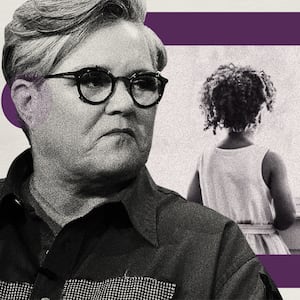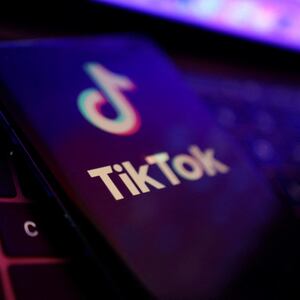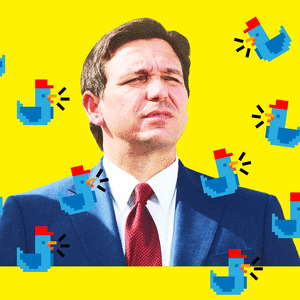Social media can be a quick way to fame and fortune for a select few, but what happens when influencers use foster and adoptive children as props for content? When cute videos of children trying on clothing go viral, it seems like innocuous fun. But those children might be exploited.
A number of influencers are building empires off of content primarily focused on talking about how to foster, how they prepare for placements, and carefully curated affiliate links to items such as affordable baby clothes, or pricier “must-have” expensive baby gear.
Brittany Dawn is one such example. A lifestyle and fitness influencer with over one million TikTok followers—currently being sued by the state of Texas for allegedly conning her audience with bogus nutrition plans—Dawn has taken to creating popular content about becoming a foster parent. From viral “get ready with me” videos showcasing steps to prepare for an emergency placement with a foster child, to editing “a day in life” videos to carefully avoid exposing possible identifying features, influencers are getting more creative on how to showcase foster placements via content on social media like TikTok, Instagram, Youtube and Facebook.
But this raises an ethical question: Is it ok for people—some with thousands or millions of social media followers—to use their foster children as products in monetizable content?
Making money off of vulnerable children is not a new phenomenon, but at this moment there are no legal tools available to protect foster children from being exploited on social media. This is especially concerning for foster children who are subject to the desires and capabilities of a system that has long since neglected them.
Influencers like Dawn make money in a variety of ways—from sponsorships, to bonuses per views allocated in-app, to selling merchandise. Those with followings of at about 200,000 can make an average of $5,000 for an Instagram post, and $3,000 for a story. Jalyn Baiden, a TikToker, made about $1,000 per sponsored post, while having just 20,000 followers. Diana Giuletta, a lifestyle influencer and aspiring actress, made over $500,000 in just brand partnerships across both apps in 2021.
While there are some brief social media guidelines suggested by Child Welfare where foster parents are supposed to (at minimum) block identifying features with digital stickers, when foster parent influencers are posting several times a day, the margin for putting youth at risk is high.
The Dougherty Dozen (two influencer parents and their brood of 14 foster and adopted kids, who as a brand have millions of followers) recently posted a very controversial video using their adoptive children. Playing off the trend of calling items or people “dupes,” they posted a video of one child calling another sibling with a known struggle with fetal alcohol syndrome, “Sid the Sloth Dupe.”
With a channel of 5.8 million with over 289.6 million likes on TikTok, it's not just a matter of whether it's ethical to make money this way, it also poses very serious safety concerns as well. Well-versed TikTok “detectives” have located where people work, what school they go to, to what type of car they have all from these little glimpses of individuals posting videos from their day-to-day life.
In 2019, Michelle Hackney, who had over a quarter million views on her Youtube channel, “Fantastic Adventures,” was accused of physically abusing her seven adopted children—making them take ice baths, wear diapers, and endure other vicious attacks if they didn’t perform to her standards. The channel was demonetized once Youtube was made aware of the arrest, but it goes to show that some foster and adoptive parents can and will take advantage of vulnerable children for profit. Some children are forced to be featured on platforms from the second they enter the home.
These minors are in precarious situations where they may feel obligated to perform in fear of losing their home and family. Foster youth and adopted children are already at greater risk of developing mental health issues than non-foster or adopted children.
In addition to the risk of abuse, there is a concern for cyber-bullying, content being reused by strangers for nefarious purposes, and confidentiality breaches of private, personal, and medical information.
Protections for children in the entertainment industry are generally within the purview of state regulations—with some having robust rules to prevent exploitation, and others having almost no protections at all. But influencers are clearly entertainers, just as social media is an entertainment business.
Countries like France have begun to broaden their labor laws to include children under 16 working in the entertainment industry—including profit-generating video-sharing platforms. Washington is the first U.S. state to address the exploitation of children who appear in social media influencers’ content. House Bill 162, if passed, would ensure kids who star in content will receive financial compensation for their work, as well as the option to delete videos in which they are featured, similar to the law in France.
While Washington state is a good start, we urgently need federal legislation that will protect foster or adoptive children, who are a particularly vulnerable and marginalized population, from being exploited on social media.









